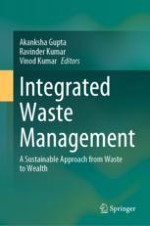2024 | OriginalPaper | Buchkapitel
Development of Technologies for Municipal Solid Waste Management: Current Status, Challenges, and Future Perspectives
verfasst von : Rajni Devi, Amit Kumar Singh, Ashwani Kumar, Ravinder Kumar, Seema Rani, Ramesh Chandra
Erschienen in: Integrated Waste Management
Verlag: Springer Nature Singapore
Aktivieren Sie unsere intelligente Suche, um passende Fachinhalte oder Patente zu finden.
Wählen Sie Textabschnitte aus um mit Künstlicher Intelligenz passenden Patente zu finden. powered by
Markieren Sie Textabschnitte, um KI-gestützt weitere passende Inhalte zu finden. powered by
